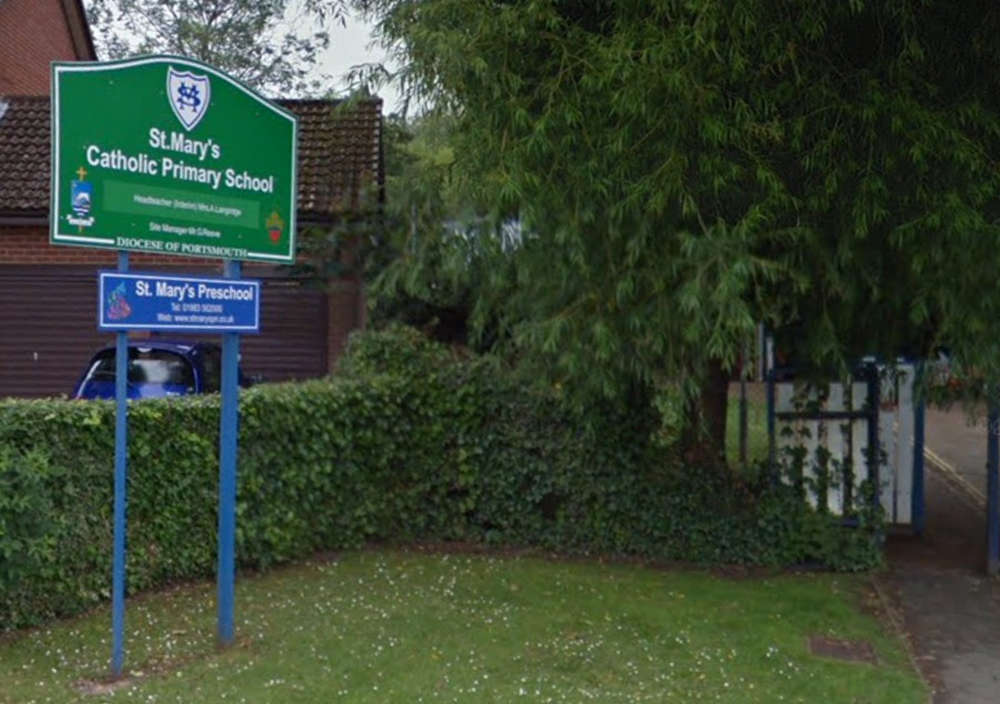
An Ofsted inspector has said “more work is necessary” for an Isle of Wight school to receive a “good” rating.
In a monitoring letter to Margaret Sanderson, executive headteacher of St Mary’s Catholic Primary School in Ryde, Sue Keeling noted the school understands the need for rapid improvement and has made progress.
She said leaders at St Mary’s had “acted quickly” and “robustly” to improve its services.
They had also recognised what needs to be done to deal with the “next steps” from the school’s previous Ofsted inspection report in November 2022.
Mrs Sanderson has put together a team around her that “fully supports” St Mary’s path to improvement, Ms Keeling wrote.
She has prioritised the development and rolling out of “well-sequenced” curriculums for English and mathematics.
There have also been improvements in the teaching of phonics and early reading, with phonics being taught using a “consistent” and “well-structured approach”.
Mrs Sanderson has also made sure the school’s weakest readers are “identified quickly”, with generally good support in place to help them catch up.
Ofsted’s inspector did however flag two areas needing more improvement in this area: at times staff do not fully understand the rationale behind one-to-one “reading support” and there are still “some inconsistencies” in phonics teaching.
The letter highlighted the school’s “high ambition” for its pupils to learn a wide and balanced curriculum, including its design of a “carefully considered” curriculum which is said to be at varying degrees of development.
In relation to the school’s nursery, the inspector said more clarity is needed on what children should be learning in order to attain “knowledge and skills” needed for future stages of learning – though she added this issue had been recognised.
The letter read:
“You have made a strong start in identifying the important knowledge that pupils must learn in each subject. This work is well on its way.
“However, you are aware that further work is needed to refine the curriculum content in subjects other than English and mathematics.
“In many subjects, the curriculum content often lacks sufficient precision.
“Statements identifying what pupils must know are often very broad and, therefore, it is not always clear exactly what pupils must learn to be ready for their next steps.
“This can lead to pupils developing gaps in their understanding that make future learning more difficult.”


 Ventnor Woman Charged With Firearm Offence
Ventnor Woman Charged With Firearm Offence
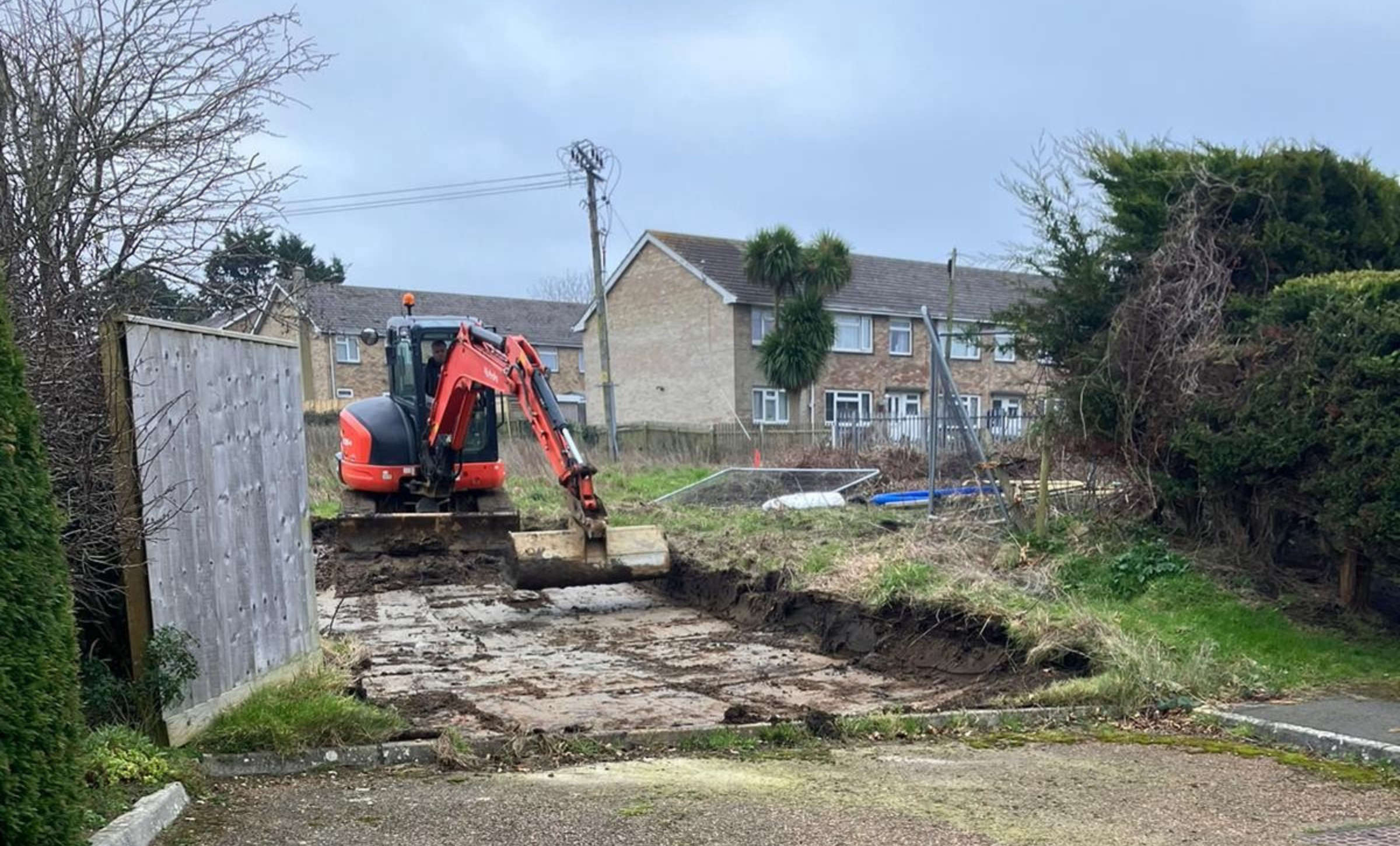 "A clear Potential That Harm Has Been Caused" - Major Housing Development "Invalidated"
"A clear Potential That Harm Has Been Caused" - Major Housing Development "Invalidated"
 Former Public Toilets Conversion Scheme Withdrawn After Wroxall Parish Council Backlash
Former Public Toilets Conversion Scheme Withdrawn After Wroxall Parish Council Backlash
 Former Trade Union Leader Appointed By Island's MPs To Look At Ferries
Former Trade Union Leader Appointed By Island's MPs To Look At Ferries
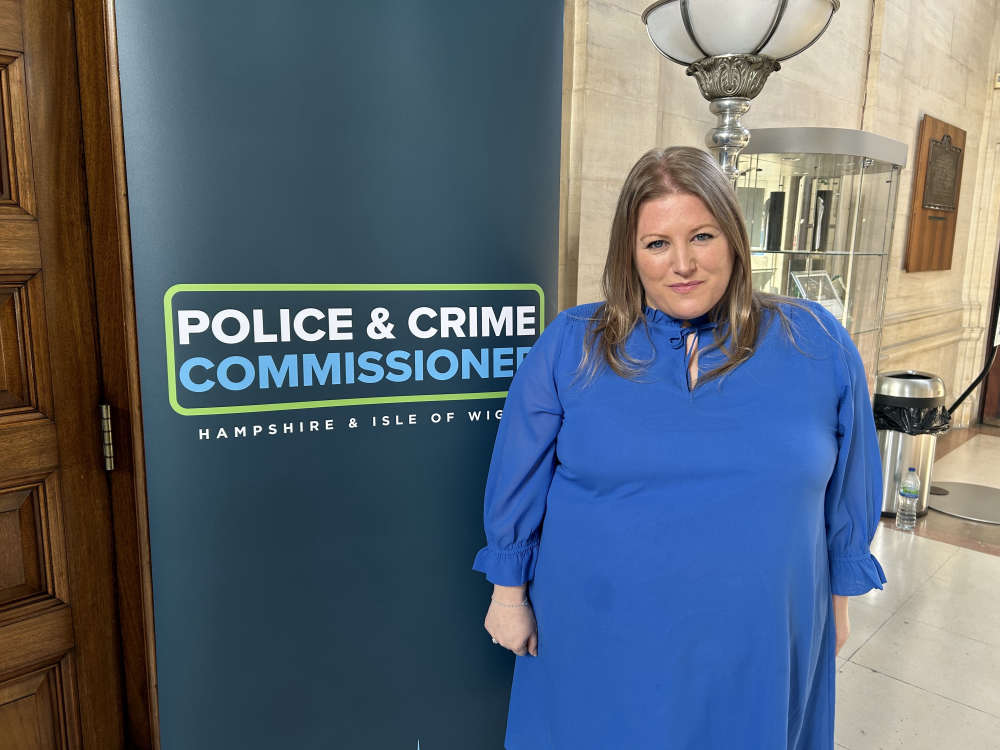 Hampshire And Isle Of Wight Police And Crime Commissioner Announces Intention To Stand For Mayor
Hampshire And Isle Of Wight Police And Crime Commissioner Announces Intention To Stand For Mayor
 Two-Bedroom Apartment Could Be Installed Behind New Laundrette
Two-Bedroom Apartment Could Be Installed Behind New Laundrette
 Isle Of Wight Pupils Set Sail To Compete Against Hampshire’s Top Young Athletes
Isle Of Wight Pupils Set Sail To Compete Against Hampshire’s Top Young Athletes
 Still Time For Island Good Causes To Apply For Foundation Funding
Still Time For Island Good Causes To Apply For Foundation Funding
 Three Arrested Following Reports Of Woman In Possession Of Firearm In Ventnor
Three Arrested Following Reports Of Woman In Possession Of Firearm In Ventnor
 Isle Of Wight Donkey Sanctuary Welcomes 12 New Animals To Its Herd
Isle Of Wight Donkey Sanctuary Welcomes 12 New Animals To Its Herd
 Introduction Of Second Homes Premium – What You Need To Know
Introduction Of Second Homes Premium – What You Need To Know
 Large Villa-Style Property Could House Four New 'Starter Homes' In Totland
Large Villa-Style Property Could House Four New 'Starter Homes' In Totland
 Dutch Braai Restaurant And Weddings Venue: New Plans Revealed For Disused Barns
Dutch Braai Restaurant And Weddings Venue: New Plans Revealed For Disused Barns
 Wave Of Acts Announced For Isle Of Wight Festival 2025
Wave Of Acts Announced For Isle Of Wight Festival 2025
 Discontent With Island Health And Social Care Services On The Rise Again — Report
Discontent With Island Health And Social Care Services On The Rise Again — Report
 Investigation Underway Following Death Of 28 Year-Old Man In Ryde
Investigation Underway Following Death Of 28 Year-Old Man In Ryde
 Former Ventnor Care Home Could Be Turned Into 'High Quality Housing'
Former Ventnor Care Home Could Be Turned Into 'High Quality Housing'
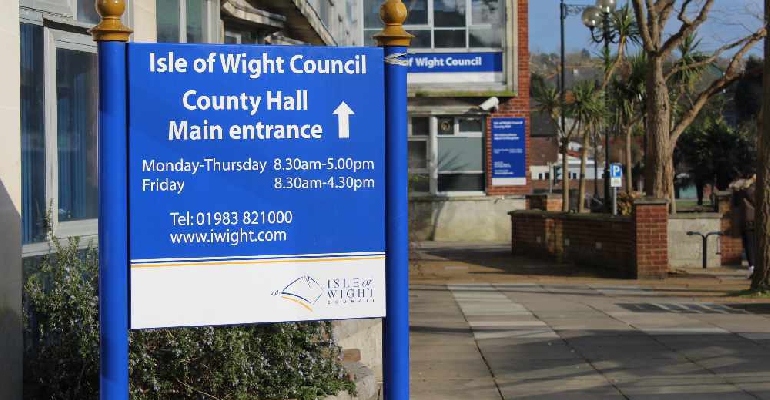 Isle Of Wight Council Fighting To Maintain Status Quo In Face Of Local Government Reorganisation Plans
Isle Of Wight Council Fighting To Maintain Status Quo In Face Of Local Government Reorganisation Plans
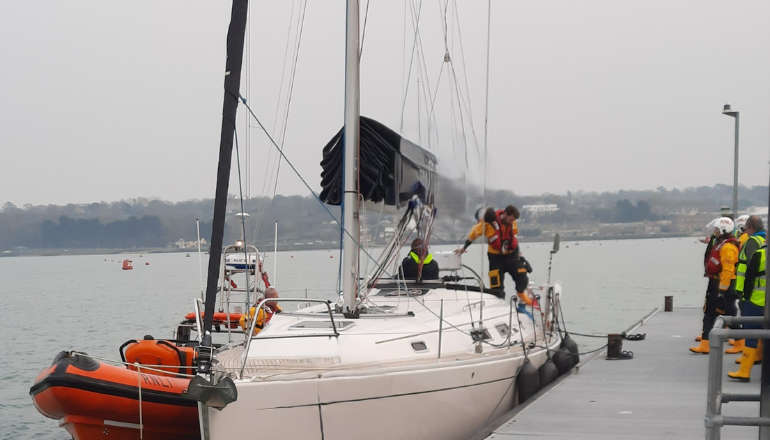 Cowes Lifeboat Team Saves The Day With Rescue Of Crippled Yacht
Cowes Lifeboat Team Saves The Day With Rescue Of Crippled Yacht
 Historic Shanklin Summerhouse To Be Converted Despite Local Opposition
Historic Shanklin Summerhouse To Be Converted Despite Local Opposition


